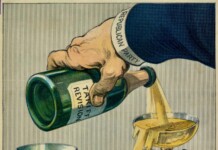By Charles Pekow — If we’re going to expand bicycle transportation in this country to its full potential, we’ll need to partner with marginalized groups. This includes making bicycle education culturally relevant, says a new report from People for Bikes (PFB). The industry-supported association conducted focus groups with businesspeople and community members in ten cities (including Denver. Ft. Collins and Tucson) to reach its conclusions.
Expanding bicycling in underserved communities means more than placing bike routes and bikeshare stations in neighborhoods. We have to understand cultural reasons why some people hesitate to ride. They may see it as a sport for white men or be scared of how they’ll look arriving at work sweaty and in bike gear. (But when questioned, focus group participants agreed that they saw many families and a variety of people biking.)
“What emerged across cities was a racial and gender disparity regarding bicycle use and perception, as well as a lack of inclusive representation and community input when it came to infrastructure planning. Ultimately, researchers found that these factors led to an inequitable distribution of infrastructure and, in some cases, the association of bike lanes with gentrification,” PFB found.
What we need to do with marginalized communities:
- Meet them in their neighborhoods. “Do not expect them to come to traditional meetings.”
- Partner with local groups.
- Encourage employers to offer benefits such as showers, bike storage and commuter benefits.
- Expand education outside government facilities and the people featured in education to include the new audiences. And it’s not just bicyclists who need to be taught safety: motorists and police do too.
- Yes, infrastructure matters. Safe, well-lit trails and secure parking will encourage people to ride.
Find the report, Where Do We Go From Here? Breaking down Barriers to Bicycling in the U.S, at https://www.peopleforbikes.org/reports/where-do-we-go-from-here-breaking-down-barriers-to







